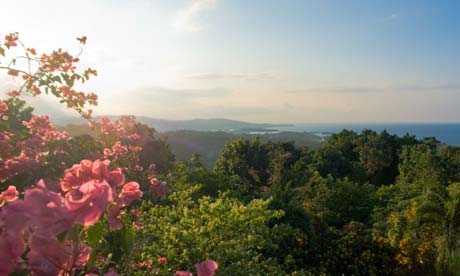
The Jamaican flag is a striking green, yellow and black; Ann-Margaret Lim's first published collection of poems, "The Festival of Wild Orchid" is equally vivid, but its key colour is blue. Chinese exiles are "shipped from the red commune to this blue island of salt and single mothers", a "blue convoy" of police cars blink a warning while revellers "stash their weed and guns", a gull disappears "into the blue crease of sea and sky" and in the poem "The Cave" everything is blue.
This is a fine, sharp-eyed and unsentimental celebration of modern day Jamaica. It opens with a nod to a personal family history and the strictures of a buttoned-down school teacher before blossoming out via a riot of flowers in "Gardening" and the intimacies of young passion – "a dark sea as warm as breath; black pebbles scuttling up; black pebbles washing back" - to a poem, "Give Me a God", that yearns for a deep and understanding love.
There's a glorious poem on playing with a baby; another on a toddler's innocent wonder at the sight of the moon and the maternal realisation of how easily cruelty springs from a child's exploration of world. There is always a spice to offset the sugar and guard the tone.
The geographical vulnerability of Jamaica is remarked upon in "the sea I swear crouches ever closer" and "windows where yellow X's were taped on for hurricanes", though in the end "the sea washes all things". Abruptly, the first poem written in patois giving voice to the people who live in poverty on the island is followed by an ode to the violent death of Wailer Pete Tosh and to Trench Town "where children know how to starve and women weep".
But a portrait of Jamaica would be incomplete without reference to the music: "the cadence music, the calypso music, the soca music, the kaiso music, the reggae music, the pop music, the reggae-pop music." "I can't find a name for that look," Ann-Margaret admits, "on the face of the electorate in the trance of music." There follows a brace of poems comparing dances 20 years apart.
A third and final section summarises in a sober tone; the invocation of an old African water spirit, a tribute to Sylvia Plath, a grim warning to thieves, a bizarre birthing poem and a meditation on the source of poetry.
This is a forgiving collection: optimistic, inclusive and welcoming, full of variety, colour and life. A genuinely uplifting read.

